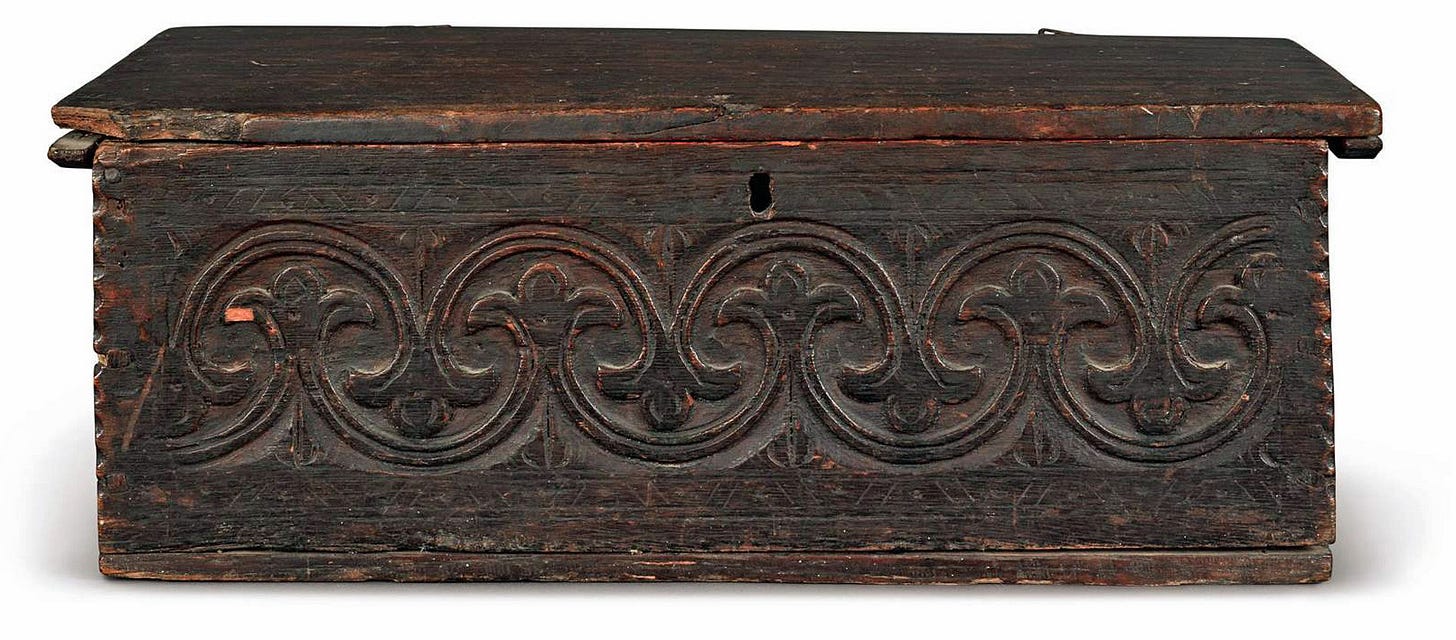Another late-afternoon session of carving. Too early to quit, too late to start something involved. I have a class coming up on making a carved box so decided I better make one or two. Had a nice section of red oak, 6 1/2” x 20” or so. And knew just the box I wanted to make.
My notes say that Bob Trent and I examined this box in May 1997. We knew right away it was work from the Savell family of joiners in Braintree, Massachusetts, c. 1640-1700. I’ll show you what we saw that clued us in - the pattern is not one found on any of the other surviving works we’ve attributed to them, but it relates to all of them.
The “typical” work of this shop is a joined chest with a drawer, carved on the top rail, 4 panels and drawer front. One of my versions below:
Two related boxes use the same motif as the top rail to decorate the fronts. A related design appears on the sides of the boxes. (A third box has a slanted lid, a “desk” or desk-box - same front, different ends.).
So how did we arrive at the conclusion this box belongs to the group?
Simple stuff like the construction - wooden pegged corners rather than nailed. Uncommon, not unheard of, but uncommon. There’s a lot of finish on this box, but you can maybe make out the square pegs driven through the front to secure it to the sides. It’s a rabbet joint, glued as well. There’s 5 pegs now, originally it would be three. the smaller pegs 2nd from bottom and at the top are added. No idea when.
Keep reading with a 7-day free trial
Subscribe to Follansbee's Substack to keep reading this post and get 7 days of free access to the full post archives.






